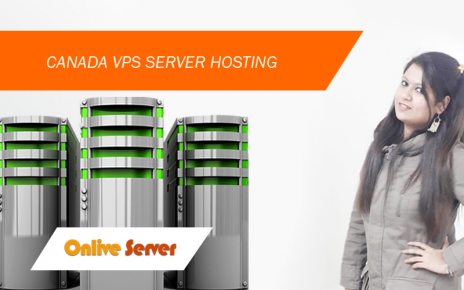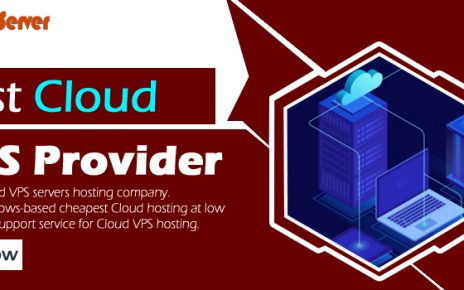SSD VPS Server (Solid State Drive Virtual Private Server) hosting stands at the forefront of cutting-edge technology, revolutionizing the hosting experience. SSDs, with their lightning-fast read and write speeds, provide an unparalleled performance boost compared to traditional HDDs.
Key Features:
- Blazing Speed: SSDs significantly enhance data access speeds, resulting in faster website loading times, quicker application response, and overall improved server performance.
- Reliability: Solid-state drives lack moving parts, reducing the risk of mechanical failure. This enhances the overall reliability and durability of your VPS server.
- Efficient Resource Utilization: SSDs enable rapid data retrieval, optimizing resource utilization and ensuring that your applications can handle a high volume of concurrent users without performance bottlenecks.
- Quick Boot Times: Benefit from faster hosting boot times, ensuring that your SSD VPS is up and running swiftly after reboots or maintenance tasks.
Setting Up an SSD VPS:
- Choose a Hosting Provider: Select a reliable hosting provider offering SSD VPS services. Consider factors such as performance, support, and scalability.
- Select a Plan: Choose an SSD VPS hosting plan based on your resource requirements. Plans typically include specifications such as CPU cores, RAM, storage, and bandwidth.
- Operating System Installation: Install the preferred operating system on your SSD VPS, and configure security settings to ensure a robust and protected hosting environment.
- Data Migration: If migrating from an HDD-based hosting, plan and execute a smooth data migration to the SSD VPS. Many hosting providers offer assistance in this transition.
Managing an SSD VPS:
- Regular Backups: Implement a comprehensive backup strategy to safeguard your data. Although SSDs are reliable, backups are crucial for unforeseen circumstances.
- Security Measures: Strengthen security with firewalls, regular software updates, and other security best practices to protect your SSD VPS from potential threats.
- Performance Monitoring: Utilize monitoring tools to keep track of resource usage, ensuring optimal performance. Address any issues promptly to maintain a seamless hosting experience.
Optimizing SSD VPS Performance:
To maximize the benefits of SSD VPS hosting, consider optimizing your server’s performance. Regularly monitor disk usage, identify resource-intensive processes, and optimize configurations to ensure efficient use of SSD capabilities.
Scaling Resources on Demand:
One of the key advantages of SSD VPS is its scalability. As your website or application grows, easily scale resources such as CPU, RAM, and storage to accommodate increasing demands. This ensures consistent high performance even during periods of high traffic.
Data Redundancy and Fault Tolerance:
Although SSDs are more resilient than traditional HDDs. It’s crucial to implement data redundancy and fault-tolerant measures. Utilize RAID configurations to safeguard against data loss in case of drive failure and ensure uninterrupted service for your users.
SSD VPS Security Best Practices:
Enhance the security of your SSD VPS hosting by following best practices. This includes regular security audits, utilizing secure connections, implementing strong authentication mechanisms, and keeping your operating system and applications up-to-date with the latest security patches.
Cost-Effective Efficiency:
While SSD VPS hosting may have a higher initial cost compared to HDD-based solutions. Its efficiency and performance benefits often result in cost savings over time. The improved speed and reduced resource consumption can contribute to a more cost-effective hosting solution.
Community and Support:
Engage with the hosting community and leverage support resources provided by your hosting provider. Participate in forums, online communities, and support channels to stay informed about best practices, troubleshooting tips, and the latest developments in SSD VPS hosting.
Environmental Considerations:
Compared to traditional HDDs, SSDs consume less power and generate less heat. This not only contributes to a greener hosting solution but also reduces the need for extensive cooling systems, further optimizing energy efficiency.
Containerization and SSD VPS:
Explore the synergy between containerization technologies like Docker and SSD VPS hosting. Containers, with their lightweight and portable nature, complement the speed of SSDs, allowing for faster deployment and efficient resource utilization.
AI-Driven Performance Optimization:
Incorporate Artificial Intelligence (AI)-driven tools for performance optimization. These tools can analyze usage patterns, predict peak times, and dynamically allocate resources on your SSD VPS hosting to ensure optimal performance and cost-efficiency.
Serverless Computing with SSD VPS:
Consider serverless computing options for certain workloads. Serverless architectures, combined with the speed of SSDs, enable you to focus on coding without the need to manage server infrastructure, leading to greater agility and cost savings.
Edge Computing and SSDs:
Explore the benefits of edge computing by deploying SSD VPS hosting at strategic locations closer to your users. Reduced latency and faster data access times contribute to an improved user experience, especially for geographically dispersed audiences.
Continuous Learning and Adaptation:
The hosting landscape is dynamic, with new technologies and methodologies emerging regularly. Stay engaged in continuous learning, attend industry events. Explore how the evolving tech ecosystem can be harnessed to further optimize your SSD VPS hosting environment.
Enhancing User Experience:
The inherent speed and responsiveness of SSD VPS hosting contribute directly to an enhanced user experience. Visitors to your websites or users of your applications benefit from quicker page loads, seamless interactions and an overall smoother online experience. This not only improves user satisfaction but can also positively impact metrics such as bounce rate and conversion rates.
Future-Proofing Your Hosting Environment:
Investing in SSD VPS hosting aligns with future-proofing your hosting infrastructure. As technology continues to advance, the demand for faster and more reliable data storage solutions will persist. SSDs, with their solid-state design and continual innovations, position your hosting environment for longevity and relevance in the ever-evolving digital landscape.
Collaboration and SSD VPS Efficiency:
If collaborating with a team of developers or administrators, the efficiency of SSD VPS hosting can significantly impact productivity. Swift data access and rapid deployment times allow for smoother collaboration, faster code builds, and quicker testing cycles.
Personalization and Data-Intensive Applications:
For applications that rely on personalization and data-intensive processing, SSD VPS hosting becomes a critical asset. Whether it’s serving personalized content, processing large datasets, or running complex algorithms. The speed of SSDs ensures these tasks are executed efficiently.
Cost-Efficiency Through Performance:
While SSD VPS hosting may involve a higher initial investment, the cost-efficiency stems from the improved performance and resource optimization. The reduction in load times, efficient resource utilization, and minimized downtime contribute to a hosting solution that provides long-term value for your investment.
Conclusion:
From enhancing user experience and future-proofing your infrastructure to enabling global accessibility and fostering collaboration, the benefits of SSD VPS extend to various facets of your digital operations. Embrace the efficiency and performance advantages of SSDs to propel your hosting environment into a future where speed, reliability, and adaptability are paramount.




